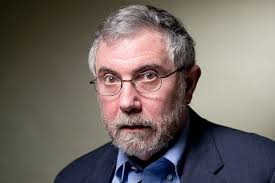Greece is a faraway country with an economy roughly the size of greater Miami, so America has very little direct stake in its ongoing disaster. To the extent that Greece matters to us, it’s mainly about geopolitics: By poisoning relations among Europe’s democracies, the Greek crisis risks depriving the United States of crucial allies.
But Greece has nonetheless played an outsized role in U.S. political debate, as a symbol of the terrible things that will supposedly happen — any day now — unless we stop helping the less fortunate and printing money to fight unemployment. And Greece does indeed offer important lessons to the rest of us. But they’re not the lessons you think, and the people most likely to deliver a Greek-style economic disaster here in America are the very people who love to use Greece as a boogeyman.
To understand the real lessons of Greece, you need to be aware of two crucial points.
The first is that the “We’re Greece!” […]











Clearly helping the less fortunate is important. Sound money is also important. I have great respect for Paul Krugman’s intellect and economic knowledge. However, I fear his hubris. Brilliant economists and well meaning technocrats often fail to take into account the many ways that demagogue politicians will corrupt the well meaning economists and technocrats theories in their quest for election.
My gut tells me that their are greater hazards and limits in finagling monetary policy to fight unemployment than Krugman realizes. I maintain that monetary policy should seek first to maintain stable currency and only secondarily, and very cautiously, try to influence unemployment.